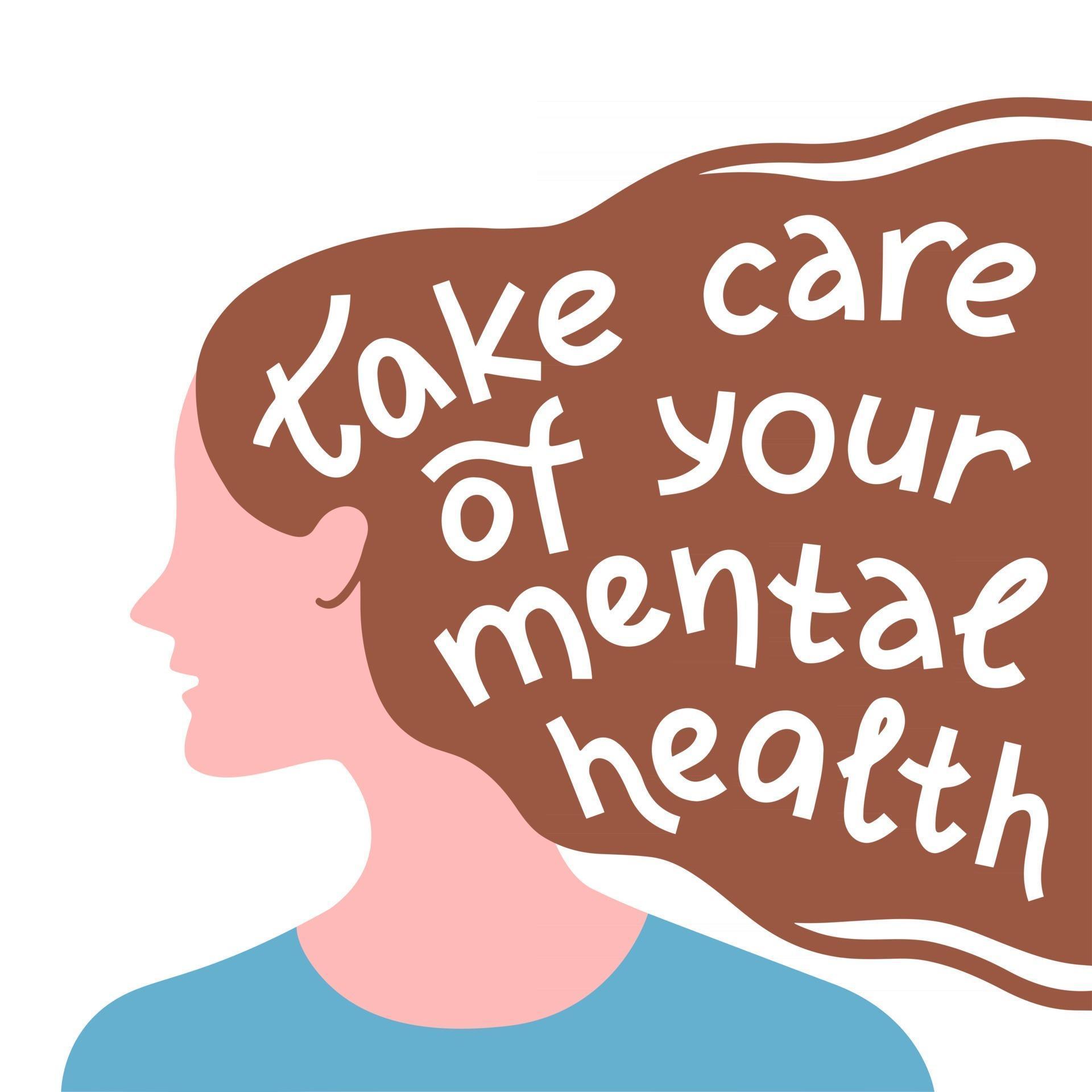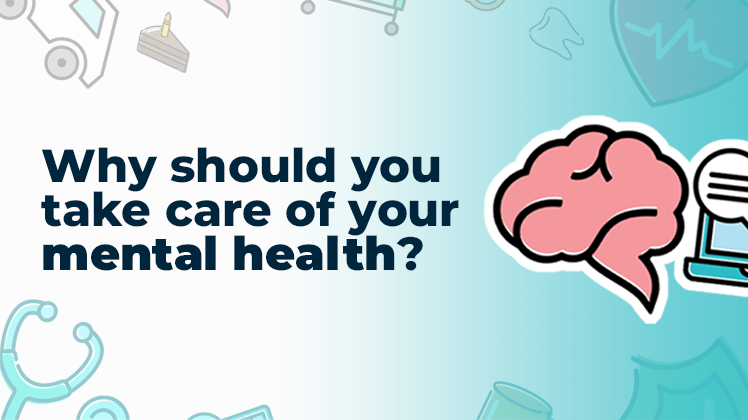Why You Should Take Care of Your Mental Health
Why you should take care of your mental health isn’t just a suggestion; it’s a crucial aspect of overall well-being. Ignoring your mental health can have far-reaching consequences, impacting everything from your relationships and work performance to your physical health. This exploration delves into the importance of mental wellness, offering practical strategies and insights to help you prioritize your mental health and build a more fulfilling life.
We’ll examine the signs of mental health challenges, explore effective coping mechanisms, and discuss the vital role of seeking professional help when needed. Understanding your mental health is a journey of self-discovery, empowering you to take control and build resilience in the face of life’s inevitable ups and downs. From recognizing subtle symptoms to building a supportive environment, this guide provides a comprehensive roadmap to prioritize your mental well-being.
The Importance of Mental Wellness
Mental wellness is not merely the absence of mental illness; it’s a state of well-being where individuals realize their own abilities, can cope with the normal stresses of life, can work productively and fruitfully, and are able to make a contribution to their community. It’s intricately linked to our physical health and plays a crucial role in our overall quality of life.
The Interconnectedness of Mental and Physical Health
Mental and physical health are deeply intertwined. Chronic stress, for example, can weaken the immune system, making individuals more susceptible to illness. Conversely, physical ailments can significantly impact mental well-being, leading to anxiety, depression, or a decreased ability to cope with daily challenges. A healthy mind contributes to healthy habits like regular exercise and balanced nutrition, further supporting physical health.
Long-Term Effects of Neglecting Mental Health
Ignoring mental health concerns can have severe long-term consequences. Untreated anxiety and depression can lead to relationship problems, job loss, substance abuse, and even increased risk of chronic physical health issues like heart disease. The cumulative effect of prolonged stress and unresolved mental health challenges can significantly diminish an individual’s overall quality of life and lifespan.
Prevalence of Mental Health Issues
Statistics show a concerningly high prevalence of mental health issues globally. For example, the World Health Organization estimates that millions of people worldwide experience depression each year. Anxiety disorders are also incredibly common, affecting a substantial portion of the population. These figures highlight the widespread need for greater awareness and access to mental health support.
Personal Stories Illustrating the Impact of Mental Wellness
Imagine Sarah, a young professional, who consistently prioritized self-care through mindfulness and regular exercise. This allowed her to navigate workplace stress effectively and maintain healthy relationships. In contrast, consider Mark, who neglected his mental health. His untreated anxiety led to isolation, impacting his work performance and relationships. These fictional examples demonstrate the tangible impact of mental wellness on daily life.
Recognizing the Signs of Mental Health Challenges
Recognizing the signs of mental health challenges is crucial for early intervention and support. While symptoms vary, understanding common indicators can empower individuals to seek help when needed.
Common Symptoms of Anxiety, Depression, and Stress
Common symptoms of anxiety include excessive worry, restlessness, difficulty concentrating, and physical symptoms like rapid heartbeat or shortness of breath. Depression often presents with persistent sadness, loss of interest in activities, changes in appetite or sleep, and feelings of hopelessness. Stress manifests as irritability, difficulty sleeping, fatigue, and muscle tension.
Subtle Signs of Mental Health Challenges
Subtle signs, often overlooked, include increased social withdrawal, changes in personal hygiene, difficulty making decisions, and a noticeable shift in personality or behavior. These subtle changes can be just as significant as more overt symptoms and warrant attention.
Distinguishing Normal Emotional Fluctuations from Persistent Mental Health Concerns
It’s important to differentiate between normal emotional ups and downs and persistent mental health concerns. While everyone experiences occasional sadness or stress, persistent feelings of overwhelming sadness, anxiety, or hopelessness that interfere with daily life indicate a potential mental health challenge requiring professional attention.
Checklist of Warning Signs
A self-assessment checklist could include questions about persistent sadness, changes in sleep or appetite, difficulty concentrating, feelings of hopelessness, excessive worry, social withdrawal, and significant changes in behavior or personality. If multiple warning signs are present, seeking professional help is recommended.
Strategies for Improving Mental Well-being
Implementing proactive strategies can significantly enhance mental well-being. These strategies focus on building resilience, managing stress, and fostering a positive mindset.
Daily Routine Incorporating Stress-Reducing Activities
A sample daily routine might include regular exercise, mindful breathing exercises, spending time in nature, engaging in hobbies, and ensuring adequate sleep. Prioritizing these activities helps reduce stress and promote a sense of calm.
Practical Self-Care Techniques
Self-care techniques include setting boundaries, practicing gratitude, spending time with loved ones, engaging in creative activities, listening to music, reading, and pursuing personal interests. These activities provide opportunities for relaxation and rejuvenation.
Effective Coping Mechanisms for Managing Difficult Emotions
Effective coping mechanisms include journaling, deep breathing exercises, progressive muscle relaxation, talking to a trusted friend or family member, and seeking professional help when needed. These strategies help individuals process and manage challenging emotions in healthy ways.
Benefits of Mindfulness and Meditation Practices
Mindfulness and meditation practices help individuals cultivate present moment awareness, reducing overthinking and promoting emotional regulation. Regular practice can lead to increased self-awareness, reduced stress, and improved emotional well-being.
Seeking Professional Help and Support
Seeking professional help is a sign of strength, not weakness. Many resources are available to provide support and guidance for individuals facing mental health challenges.
Types of Mental Health Professionals

Various mental health professionals, including psychiatrists, psychologists, therapists, and counselors, offer different types of support. Psychiatrists can prescribe medication, while other professionals provide therapy and counseling to address underlying issues.
Finding a Therapist or Counselor
Finding a therapist often involves researching professionals in your area, considering their specialties and approach, and scheduling an initial consultation to determine if it’s a good fit. Many communities offer resources to help individuals find appropriate mental health services.
Accessing Mental Health Services
Many communities offer a range of mental health services, including individual therapy, group therapy, support groups, and online resources. Exploring these options can help individuals find the most suitable support for their needs.
Importance of Open Communication
Open communication with friends and family can provide invaluable support. Sharing your struggles can help reduce feelings of isolation and foster a sense of connection and understanding.
Building a Supportive Environment
Cultivating a supportive environment is essential for maintaining good mental health. This involves nurturing relationships, setting healthy boundaries, and fostering open communication.
Role of Social Connections
Strong social connections provide a sense of belonging, reduce feelings of loneliness, and offer emotional support during challenging times. Maintaining healthy relationships with family and friends is crucial for mental well-being.
Importance of Setting Healthy Boundaries
Setting healthy boundaries protects mental and emotional well-being by preventing overcommitment and protecting personal space. Learning to say “no” to requests that compromise well-being is a crucial self-care skill.
Tips for Fostering Positive Relationships, Why you should take care of your mental health
Fostering positive relationships involves active listening, empathy, open communication, mutual respect, and shared activities. Nurturing these connections strengthens social support networks.
Communicating Effectively About Mental Health Concerns
Communicating effectively involves expressing needs clearly and respectfully, actively listening to others’ perspectives, and seeking clarification when needed. Open and honest conversations build trust and understanding.
The Impact of Lifestyle Choices: Why You Should Take Care Of Your Mental Health
Lifestyle choices significantly impact mental well-being. A healthy lifestyle can act as a buffer against mental health challenges.
Relationship Between Diet, Exercise, and Mental Well-being
A balanced diet and regular exercise have a positive impact on mood, energy levels, and stress management. Nutritious food provides the brain with essential nutrients, while exercise releases endorphins, improving mood and reducing stress.
Maintaining good mental health is crucial, and there’s a wealth of information available. For instance, the world congress of the world federation for mental health 2017 offered valuable insights into global mental health challenges. Interestingly, research suggests a strong link between physical activity and mental wellbeing; you can find many scholarly articles on this topic by searching ” working out everyday affect mental health scholarly essays google “.
Regular exercise can significantly boost your mood and overall mental health.
Effects of Sleep Deprivation
Sleep deprivation negatively impacts mood, concentration, and emotional regulation. Consistent sleep deprivation can exacerbate existing mental health conditions and increase vulnerability to new ones.
Influence of Substance Use
Substance use, including alcohol and drugs, can negatively impact mental health, exacerbating existing conditions and increasing the risk of developing new ones. Substance use often serves as a maladaptive coping mechanism, masking underlying issues.
Maintaining good mental health is crucial, and there’s a wealth of information available. For instance, you can learn more about global initiatives by checking out details on the world congress of the world federation for mental health 2017. This event highlighted many key issues. Interestingly, research shows a strong link between physical activity and mental wellbeing; you can find numerous scholarly articles supporting this by searching ” working out everyday affect mental health scholarly essays google “.
Regular exercise can significantly improve your mood and overall mental health.
Plan for Incorporating Healthy Lifestyle Changes
Incorporating healthy lifestyle changes involves setting realistic goals, gradually incorporating new habits, seeking support from others, and celebrating milestones. Small, consistent changes can lead to significant improvements in mental well-being.
Challenging Negative Thoughts and Beliefs
Negative thought patterns can significantly impact mental well-being. Learning to identify and challenge these thoughts is crucial for improving mental health.
Common Cognitive Distortions

Common cognitive distortions include all-or-nothing thinking, overgeneralization, mental filtering, jumping to conclusions, and personalization. Recognizing these patterns is the first step towards challenging them.
Techniques for Challenging and Reframing Negative Thoughts
Techniques for challenging negative thoughts include identifying the thought, evaluating its validity, generating alternative explanations, and reframing the thought in a more positive and realistic way. This process helps individuals develop a more balanced perspective.
Building Self-Compassion and Self-Esteem
Building self-compassion involves treating oneself with kindness and understanding, acknowledging imperfections, and practicing self-forgiveness. Self-esteem is built through recognizing strengths, celebrating accomplishments, and setting realistic expectations.
Practicing Positive Self-Talk
Positive self-talk involves replacing negative self-criticism with supportive and encouraging statements. This practice helps cultivate a more positive self-image and enhances self-esteem.
Understanding Mental Health in Different Life Stages
Mental health challenges vary across different life stages, requiring tailored approaches to support and intervention.
Mental Health Challenges Across Age Groups
Adolescence is often characterized by increased stress related to identity formation, peer pressure, and academic demands. Adulthood may present challenges related to career, relationships, and family responsibilities. Older adults may face challenges related to health issues, loss, and social isolation.
Unique Needs of Specific Populations
Specific populations, such as adolescents, elderly individuals, and those with chronic illnesses, have unique mental health needs. Understanding these needs is crucial for providing appropriate support and intervention.
Adapting Mental Health Strategies
Mental health strategies must be adapted to individual circumstances and life stages. What works for one person may not work for another, and approaches need to be flexible and individualized.
Resources for Specialized Mental Health Support
Various resources exist to support individuals facing mental health challenges at different life stages. These resources can include specialized therapy, support groups, and educational materials tailored to specific needs and circumstances.
Prioritizing your mental health isn’t selfish; it’s essential for a vibrant and fulfilling life. By understanding the interconnectedness of mental and physical health, recognizing warning signs, and implementing proactive strategies, you can cultivate resilience and navigate life’s challenges with greater ease. Remember, seeking support is a sign of strength, not weakness. Embrace self-compassion, build supportive connections, and embark on a journey towards a healthier, happier you.
Share this content:

